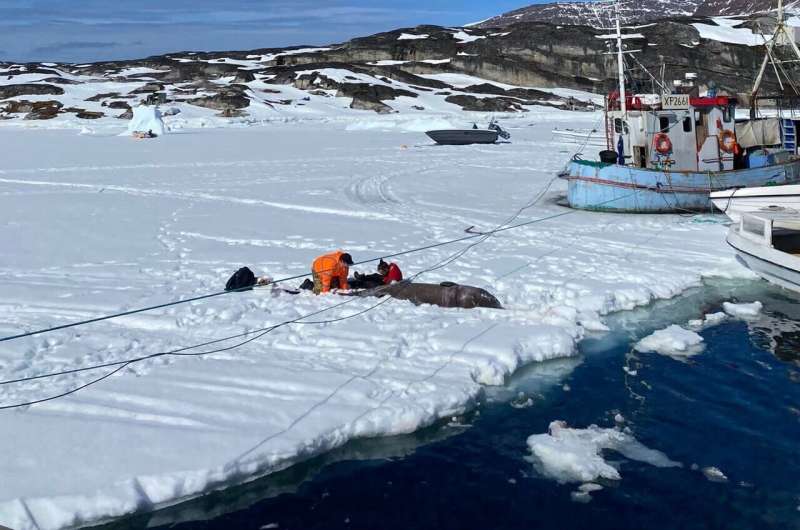Discovering new anti-aging secrets from the world's longest-living vertebrate
Originally published by Society for Experimental Biology, on July 3, 2024
Tissue collection from a Greenland shark. Credit: Ewan Camplisson
New experimental research shows that muscle metabolic activity may be an important factor in the incredible longevity of the world's oldest living vertebrate species—the Greenland shark. These findings may have applications for conservation of this vulnerable species against climate change or even for human cardiovascular health.
Greenland sharks (Somniosus microcephalus) are the longest-living vertebrate, with an expected lifespan of at least 270 years and a possible lifespan beyond 500 years.
"We want to understand what adaptations they have that allow them to live so long," says Ewan Camplisson, a Ph.D. student at the University of Manchester, UK.
Previously, it was thought that this long lifespan was due to the shark's cold environment and minimal movement, but the factors behind the extreme longevity of this species appear to be far more complex—prompting Camplisson and his team to investigate alternative theories.



Comments
Post a Comment